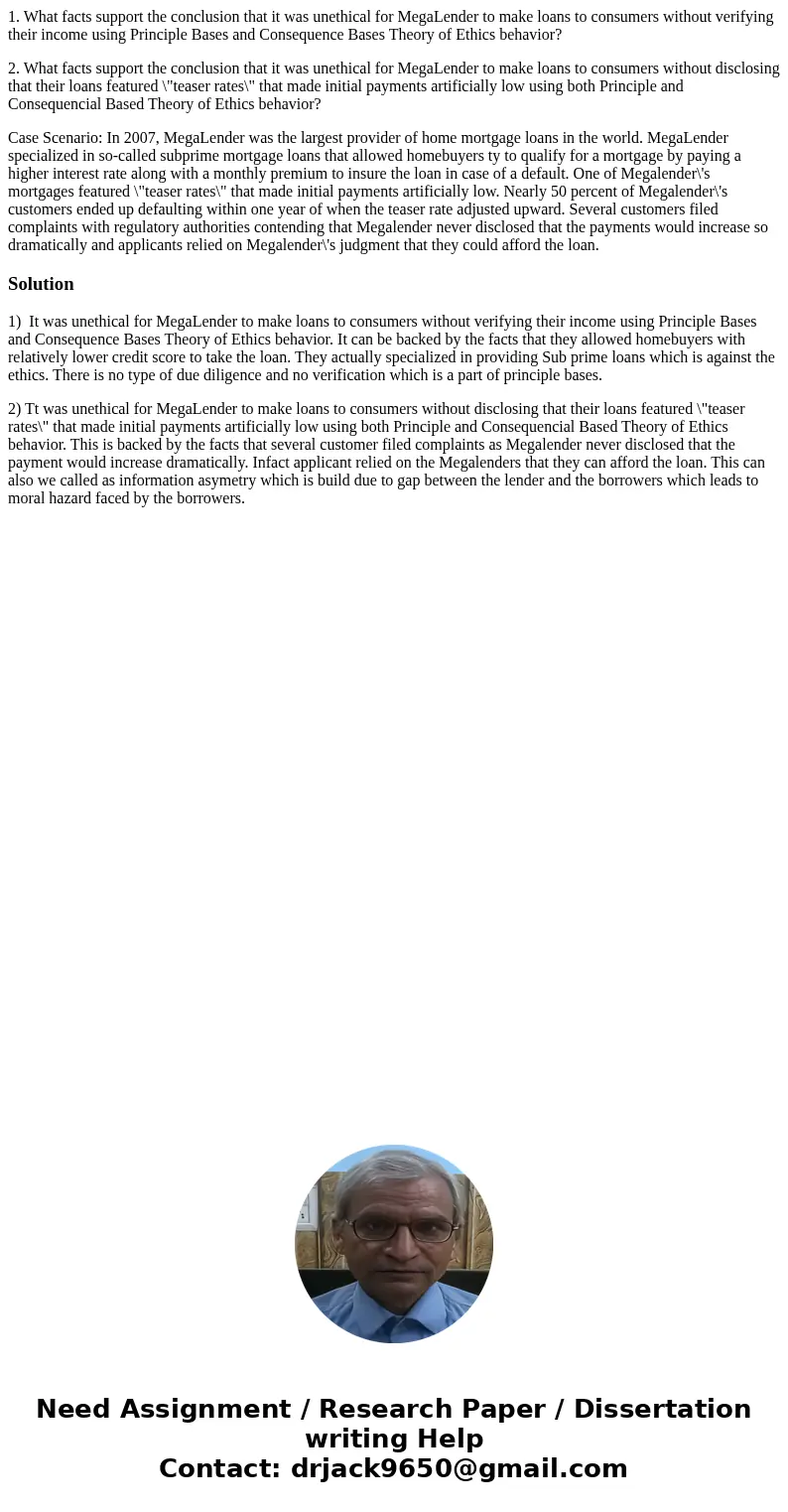1 What facts support the conclusion that it was unethical fo
1. What facts support the conclusion that it was unethical for MegaLender to make loans to consumers without verifying their income using Principle Bases and Consequence Bases Theory of Ethics behavior?
2. What facts support the conclusion that it was unethical for MegaLender to make loans to consumers without disclosing that their loans featured \"teaser rates\" that made initial payments artificially low using both Principle and Consequencial Based Theory of Ethics behavior?
Case Scenario: In 2007, MegaLender was the largest provider of home mortgage loans in the world. MegaLender specialized in so-called subprime mortgage loans that allowed homebuyers ty to qualify for a mortgage by paying a higher interest rate along with a monthly premium to insure the loan in case of a default. One of Megalender\'s mortgages featured \"teaser rates\" that made initial payments artificially low. Nearly 50 percent of Megalender\'s customers ended up defaulting within one year of when the teaser rate adjusted upward. Several customers filed complaints with regulatory authorities contending that Megalender never disclosed that the payments would increase so dramatically and applicants relied on Megalender\'s judgment that they could afford the loan.Solution
1) It was unethical for MegaLender to make loans to consumers without verifying their income using Principle Bases and Consequence Bases Theory of Ethics behavior. It can be backed by the facts that they allowed homebuyers with relatively lower credit score to take the loan. They actually specialized in providing Sub prime loans which is against the ethics. There is no type of due diligence and no verification which is a part of principle bases.
2) Tt was unethical for MegaLender to make loans to consumers without disclosing that their loans featured \"teaser rates\" that made initial payments artificially low using both Principle and Consequencial Based Theory of Ethics behavior. This is backed by the facts that several customer filed complaints as Megalender never disclosed that the payment would increase dramatically. Infact applicant relied on the Megalenders that they can afford the loan. This can also we called as information asymetry which is build due to gap between the lender and the borrowers which leads to moral hazard faced by the borrowers.

 Homework Sourse
Homework Sourse